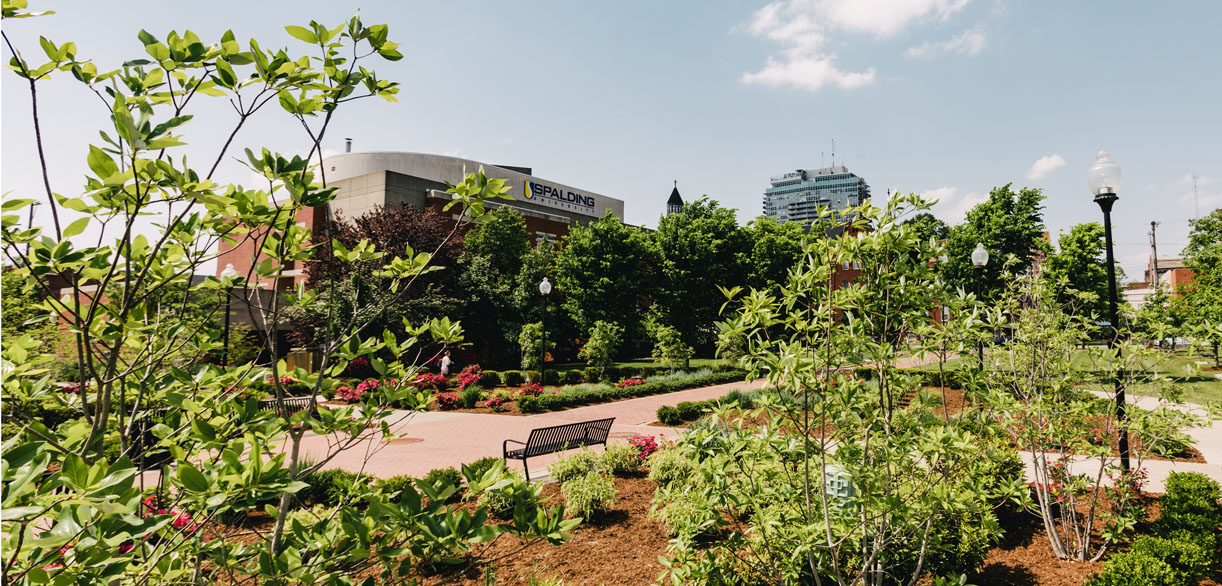Counseling and Psychological Services (CaPS)

CaPS is ready to support your mental health and psychological needs throughout your time at Spalding University. College can be a time of much transition and challenges. Whether you are 18 or 80, just coming in from high school or have been out working for awhile and decided to come to school, college can feel overwhelming. Figuring out how to balance all of your life’s responsibilities is a challenge for most people. We are here to help with that balance.
We are also here to help you develop more personal awareness and learn the skills you need to be successful while you are here. Counseling is helpful for pretty much any issue you are dealing with and we have heard just about everything. We provide an array of services, all of which are confidential and free for Spalding University students.
To schedule an appointment, email us at caps@spalding.edu.
What Services Do We Offer?
There is no additional cost for any of our services.
Currently we are offering telehealth, virtual and in-person appointments. All questions and requests for appointments can be sent to us at caps@spalding.edu or by calling (502) 873-4486. Email typically has the quickest response time.
Psychological Assessment
Psychological assessment is an integral part of the services CaPS offers. These services (i.e. assessment for learning disabilities, attention-deficit disorders, personality characteristics, etc.) are offered in conjunction with counseling or as a separate service. Coordination with Accessibility Services may be required if classroom accommodations are needed.
If you think you may need accommodations in the classroom based on problems that interfere with your learning please email us at caps@spalding.edu to make an appointment. The assessment process may take some time to complete. If we don’t find you have a diagnosis, we will still be able to provide recommendations to help with whatever you need.
If you had an IEP, a 504 plan, or any other accommodations in high school you may need a new assessment in order to continue any accommodations. The first step in this process is to visit the Office of Student Accessibility Services.
Individual Therapy
Individual therapy generally consists of 50-minute, private sessions with a therapist. These can occur weekly, every other week or even monthly check-ins. While individual therapy is a wonderful resource, please know that there is more limited availability during times of the year when the CaPS is in high demand. This may mean that your therapist cannot see you on a weekly basis. If you feel like you need more than what is available or you are currently on a waitlist, consider exploring some of our other options (like groups or outside resources).
Group Therapy
Why are groups such a great option? Groups allow you to bond and grow with others who have shared life experiences. It is a place where you get to be part of something truly special as you all come together to work toward a common goal.
Reach out to CaPS to talk with a staff member about what groups are currently being offered. The groups offered constantly rotate and we are always looking for new group topics to serve the needs of Spalding.
Behavioral Health Consultation
If this is the first time you have come to Spalding CaPS, you are likely here for a Behavioral Health Consultation (BHC). The purpose of the BHC is to spend an hour, one-on-one with a therapist, to explore what brought you to the center and what resources are available. The BHC is a solution-focused session that identifies strategies and skills you can use. After the BHC some people prefer to come in for ongoing therapy and others choose to test out those skills on their own.
Meditation Training
If you are interested in starting meditation but are not sure how, CaPS can help you get started. Email us to inquire about individual or group meditation training.
We also have a meditation center in the lower level of the library where you will find other meditation and mindfulness resources, and a great quiet place to relax on campus.
What Other Resources Do We Offer?
Mindfulness Blog
Check out our monthly posts about Mindfulness and Meditation on our News and Blog page.
Allison From-Tapp — YouTube
Allison From-Tapp (Spalding University CaPS). We are a student counseling center and want to provide video content to our students.
External Resources
If you feel you are in crisis and need to speak with someone immediately, please use one of these resources. They are available 24 hours a day, 7 days a week, 365 days a year. Help is at your fingertips.
Crisis Text Line | Text HOME To 741741 free, 24/7 Crisis Counseling
Crisis Text Line provides free, 24/7 support via text message for everything: anxiety, depression, suicide, school. Text HOME to 741741.
Centerstone | Get Help Now 24/7 Help
Get help now, call 1-877-HOPE123 (877-467-3123). Their behavioral health crisis teams offer confidential help & support 24/7.
Lifeline | Talk To Someone Now
If you’re thinking about suicide, are worried about a friend or loved one, or would like emotional support, the Lifeline network is available 24/7 across the United States.
Veterans Crisis Line | Suicide Prevention Hotline, Text & Chat – 24/7, confidential crisis support
24/7, confidential crisis support for Veterans and their loved ones. Call the Veterans Crisis Line at 1-800-273-8255 and Press 1, chat online, or text 838255.